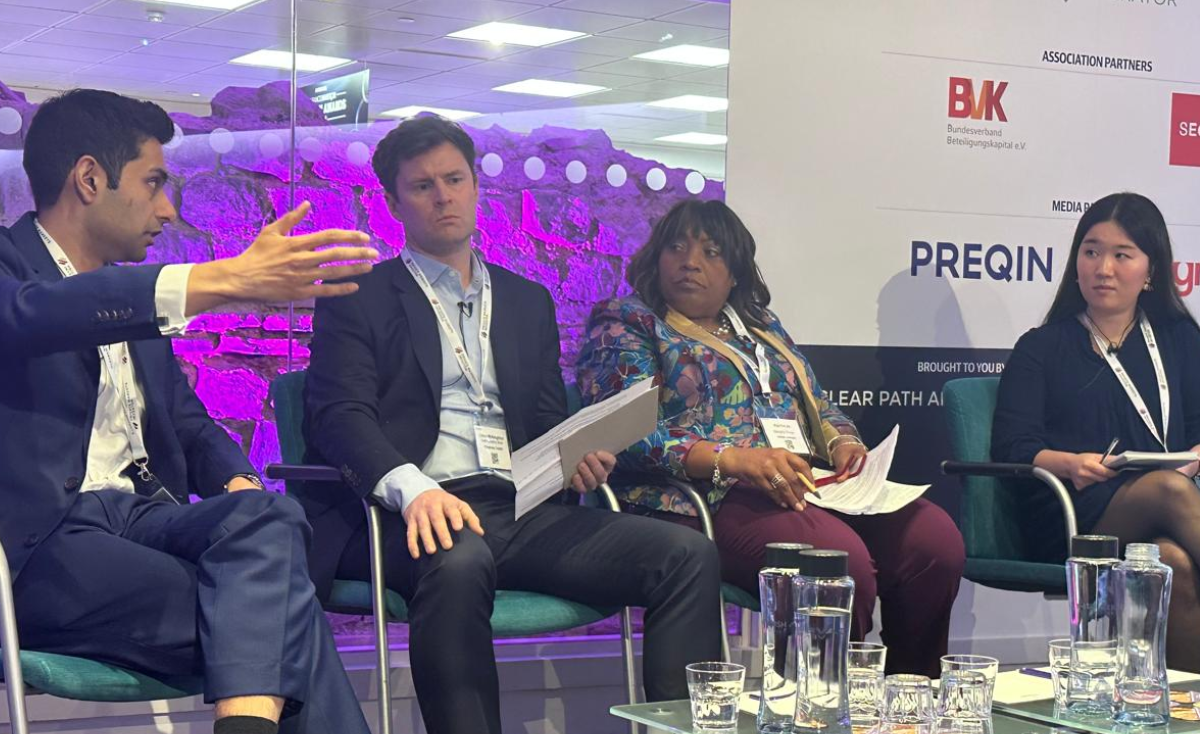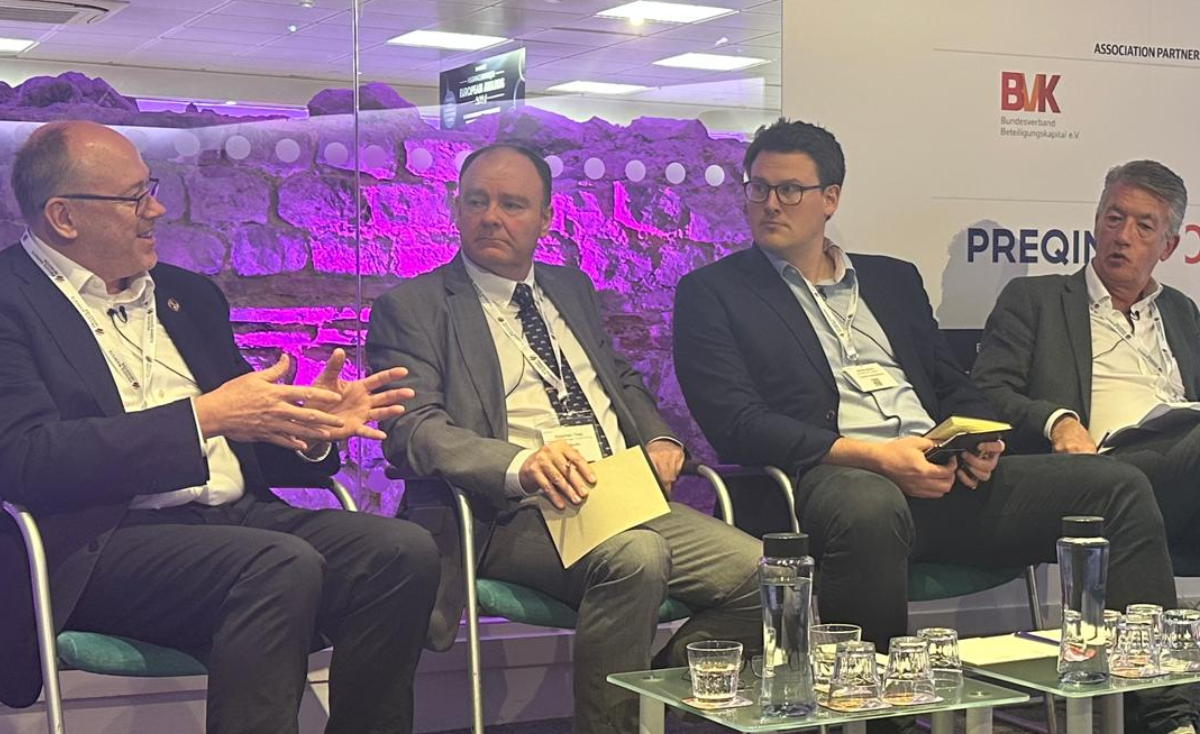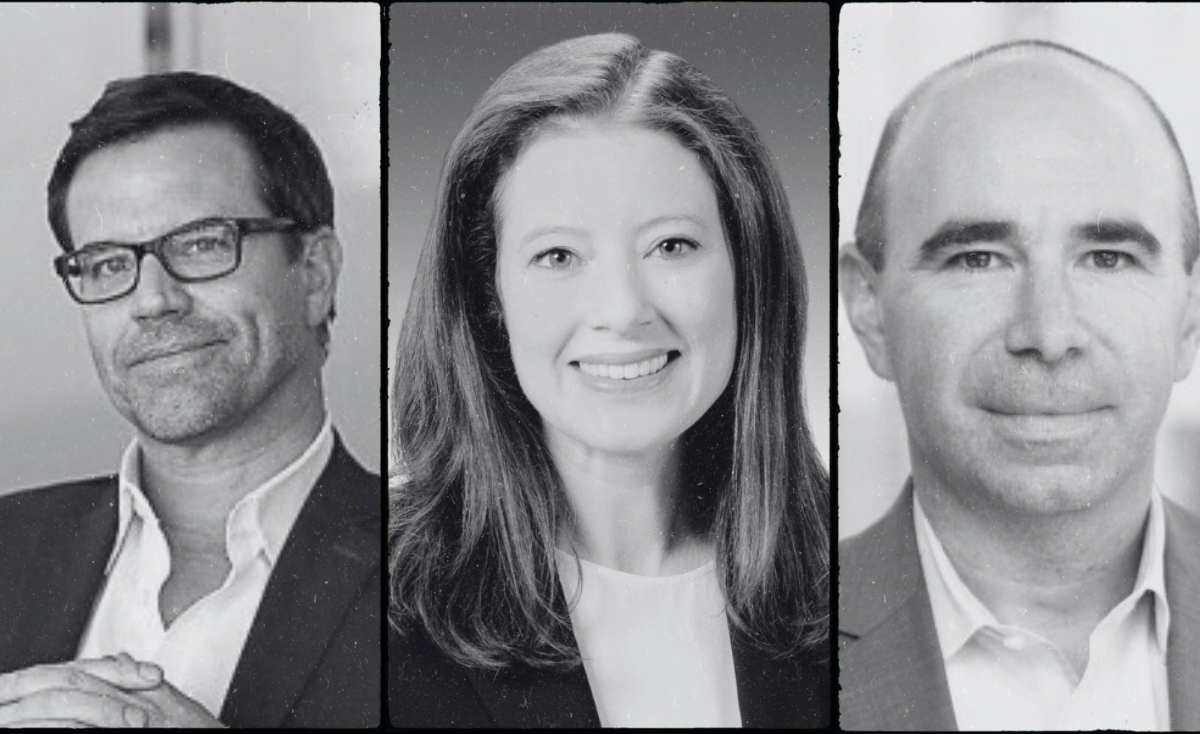How do you achieve trust and fairness in fund and asset valuation policies?
The balance between technology and people is paramount to building trust around valuations and pricing, said a panel discussion at Private Markets Investor | Europe 2024 in London on Thursday.
Andrew Putwain POSTED ON 3/22/2024 12:00:00 PM
 From L to R: Sarwal, McNaughton, Knight, and Kim.
From L to R: Sarwal, McNaughton, Knight, and Kim.
A panel discussion at Private Markets Investor | Europe 2024 in London on Thursday said that trust between stakeholders was imperative to enabling more robust fund and asset valuation policies – and, to achieve this, there needed to be a better balance between technology and people throughout the process.
The panel, which was moderated by Soojin Kim, AVP, Head of ESG Research at Preqin, featured Conor McNaughton, Chief Operating Officer at Kingsway Capital, Manish Sarwal, Head of Commercial Asset Management at Impax Asset Management, and Rob Knight, Managing Director at RRAK Advisory. It focused on developing better, more thorough, and more transparent procedures, as well as managing personal relationships when competing priorities and tight timeframes might cause friction.
“The balance between technology and people is important, and it touches all spheres. It’s a big strain right now in [almost every] industry,” said Kim. The question was, she said, how do you determine best practices, especially with equal buy-in from partners and stakeholders?
The panellists highlighted that having to rely on third-party vendors for valuation information was especially necessary in private markets, which then meant there was a need to validate that information in-house, creating a heavy workload for fund operators. Asset managers were equally responsible, if not more, for the accuracy of that third-party information, said Knight. The panel agreed that the risks of falling foul of compliance regulations were too great and that a good relationship, with trust, between asset managers and service providers could help reduce risk.
“How do you account for geopolitical issues and infrastructure concerns in pricing,
when [these elements] change so frequently?”
“We need to build internal processes and systems for data verification,” said Knight. She highlighted that there were multiple factors that went into why certain information couldn’t be taken at face value and needed to be re-analysed and double-checked. This, however, also slowed pipelines. “How do you account for geopolitical issues and infrastructure concerns in pricing, when [these elements] change so frequently?” she asked, giving the example of the projects in multiple countries around the construction of high-speed rail. This has been highlighted especially in the UK with the HS2 saga, as well as in other places such as California.
“You have to ensure you are constantly reviewing your business model,” Knight added. “And you need the right competence in the room to ensure the process happens in a timely fashion.”
The conversation turned to whether third party vendors were bringing knowledge or just providing services, and what the ideal situation was, with Sarwal asking Knight her opinion. He noted that whilst third parties should be bringing all their knowledge to the table, it often just felt like “box ticking”. McNaughton agreed, saying that it "was rare" for third party providers to be fully integrated into the equation, sharing expertise.
“[Valuations] can depend on the sophistication of the portfolio company; [in private markets] an apples-to-apples comparison is tricky. It's also tricky when there is time pressure to close a deal quickly,” Sarwal added.
Getting the right data
Sarwal, whose firm focuses on investing in public green infrastructure and energy projects, said that the way private markets funds’ pricing committees and management processes were structured often meant that “all data is on a spreadsheet or a PowerPoint”, which created issues around timeliness and collaboration. The trust relationship needed to go both ways, with each side providing good data and focusing on timelines, but not at the expense of quality.
He advocated for more checks throughout the valuation and investment decision process, and having dedicated people on committees with the remit of checking information. He also encouraged building checking procedures into discussions from the beginning, so that potential delays could be factored in more easily. Without pre-agreed upon ways of working between all involved sides, there were additional problems, especially around asset managers then needing to determine if they were “100% confident there are no coding errors in that data” while also pressed for time.
“More people will be lifting up the bonnet as private markets
make up more of insurers' balance sheets.”
“If there was a fundamental error it would be very embarrassing,” he said, adding that the selected person on the investment team who could highlight the key risks to the committee to monitor would be someone also be in charge of making sure it “doesn’t take too long”. There also needed to be more action and due-diligence on the part of auditors. “Auditors should say to us, this is what we’re looking at, and, this is what your peers have been doing, as part of a robust valuation process,” he said.
Sarwal added that the divergence between listed and private valuations would become more apparent in the coming months. “I think more people will be lifting up the bonnet as private markets make up more of insurers' balance sheets.”
Collaboration, collaboration, collaboration
The volume of information needed and received was also an issue, particularly around emerging markets deals, with McNaughton saying there were a “number of pain points” around the process that needed to be worked on.
He added that proper and fundamental valuations were critical but challenging to get. “Volume is the most difficult, but it’s also hard to get information from portfolio management companies – and often time [there is] not enough detail.” He gave the example of investing in places such as Tanzania.
Cost and resource concerns were especially tricky, said McNaughton, when working in a small team. He built on points from Sarwal about the need to make a few people ‘owners’ of processes, with clear, achievable steps in the journey. Bridging both Knight's and Sarwal’s point on trust and processes. he said systems needed to improve valuations, not make them more difficult. “It’s important to bring in independent directors to valuation committee,” he said, with Knight agreeing, to “keep tabs”. “Also bring in the head of compliance, someone who thinks very differently than the analyst,” he added.
“It all depends on trust.
The last thing we and our stakeholders want is a surprise.”
McNaughton said that, for critical positions, fund operators should use third-party vendors, and it was important to maintain a proactive relationship with them. “You also need to pick up phone and not be charged for a ten minute conversation,” he said, once again emphasising the need for trust and collaboration. “I’m always on the phone with [third parties], especially offshore auditors. These problems will persist for the time being; I don’t see them being completely solved any time soon.”
However, like Knight and Sarwal, McNaughton said he felt everything came back to people and trust. Building processes around the decision journey to make sure data was accurate and workloads were manageable was necessary from the outset of a project. “It all depends on trust. The last thing we and our stakeholders want is a surprise,” he added.
Please Sign In or Register to leave a Comment.
SUBSCRIBE
Get the recent popular stories straight into your inbox







